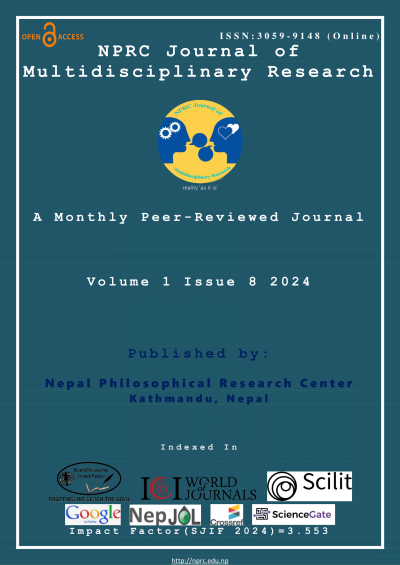Leadership Dynamics and Organizational Citizenship Behavior in Banking Sector: An Essence of Transformational and Transactional Leadership Styles
DOI:
https://doi.org/10.3126/nprcjmr.v1i8.73022Keywords:
Transformational leadership, transactional leadership, impact, Organizational citizenship behavior, commercial banksAbstract
Focusing on transformational and transactional leadership, the study investigates how leadership styles affect organizational citizenship behavior (OCB) in Nepal's banking industry. Fostering OCB, essential in fiercely competitive industries like banking, requires strong leadership. Despite its importance, this relationship has not received much attention in the Nepalese context. Data was gathered quantitatively from 278 officers and assistants working for six commercial banks. Transformational and transactional leadership and the organizational (OCBO) and individual (OCBI) aspects of OCB were assessed using a structured questionnaire. The results show that, whereas transactional leadership has a smaller, non-significant effect, transformational leadership has a significant, positive correlation with both OCBI and OCBO. By encouraging motivation, teamwork, and dedication, transformational leaders encourage staff members to go above and beyond their assigned duties, which improves OCB. On the other hand, transactional leadership, which emphasizes performance and rewards, has little impact on OCB. These findings support earlier research and highlight the importance of transformational leadership in encouraging proactive employee conduct. Among the limitations that affect generalizability are the sample size and the reliance on self-reported data. Future studies should examine various industries, include more leadership philosophies, and examine mediating elements such as corporate culture. These observations can help firms implement leadership techniques to improve worker performance and engagement.
Downloads
Downloads
Published
How to Cite
Issue
Section
License
Copyright (c) 2024 The Author(s)

This work is licensed under a Creative Commons Attribution-NonCommercial 4.0 International License.
This license enables reusers to distribute, remix, adapt, and build upon the material in any medium or format for noncommercial purposes only, and only so long as attribution is given to the creator.





